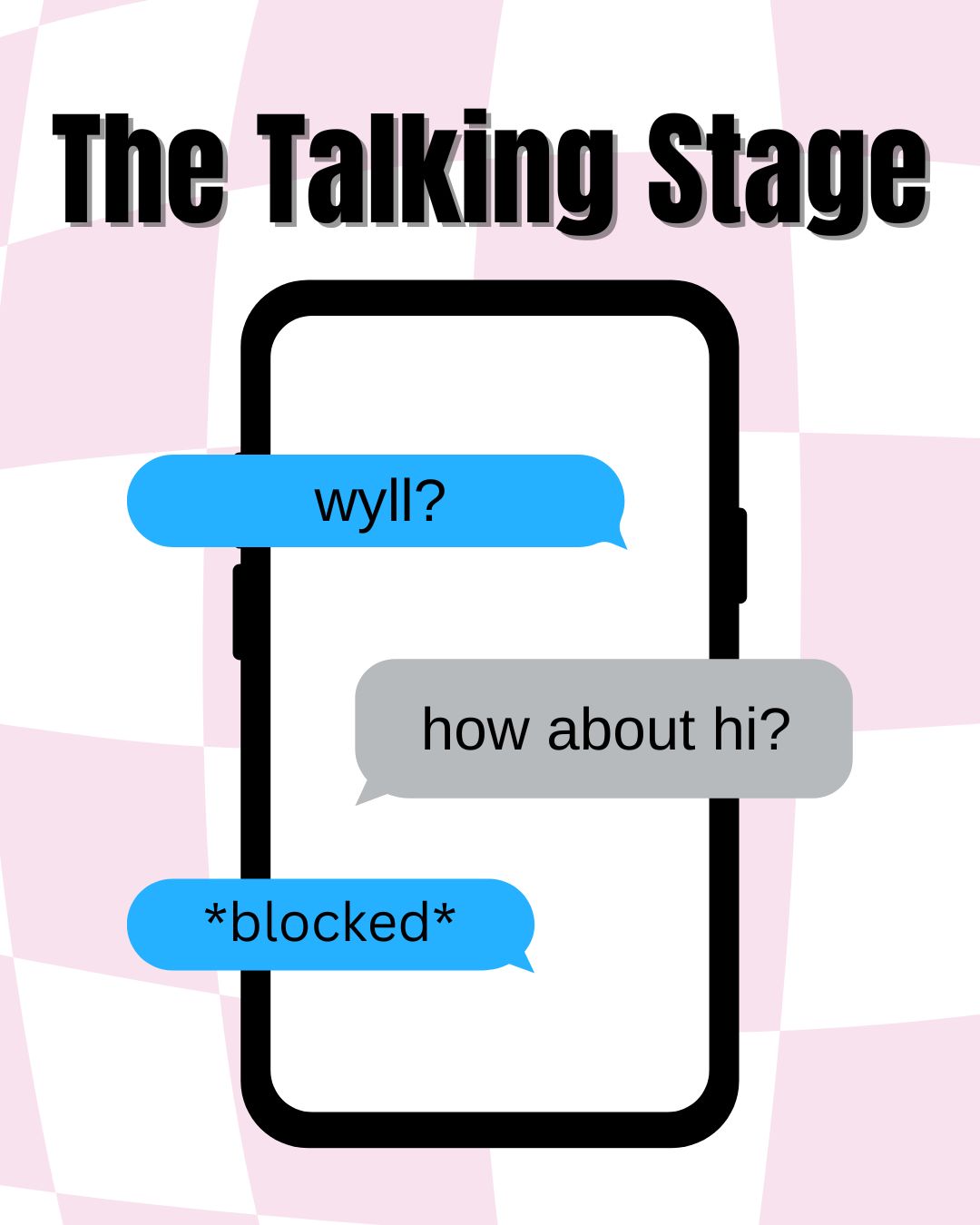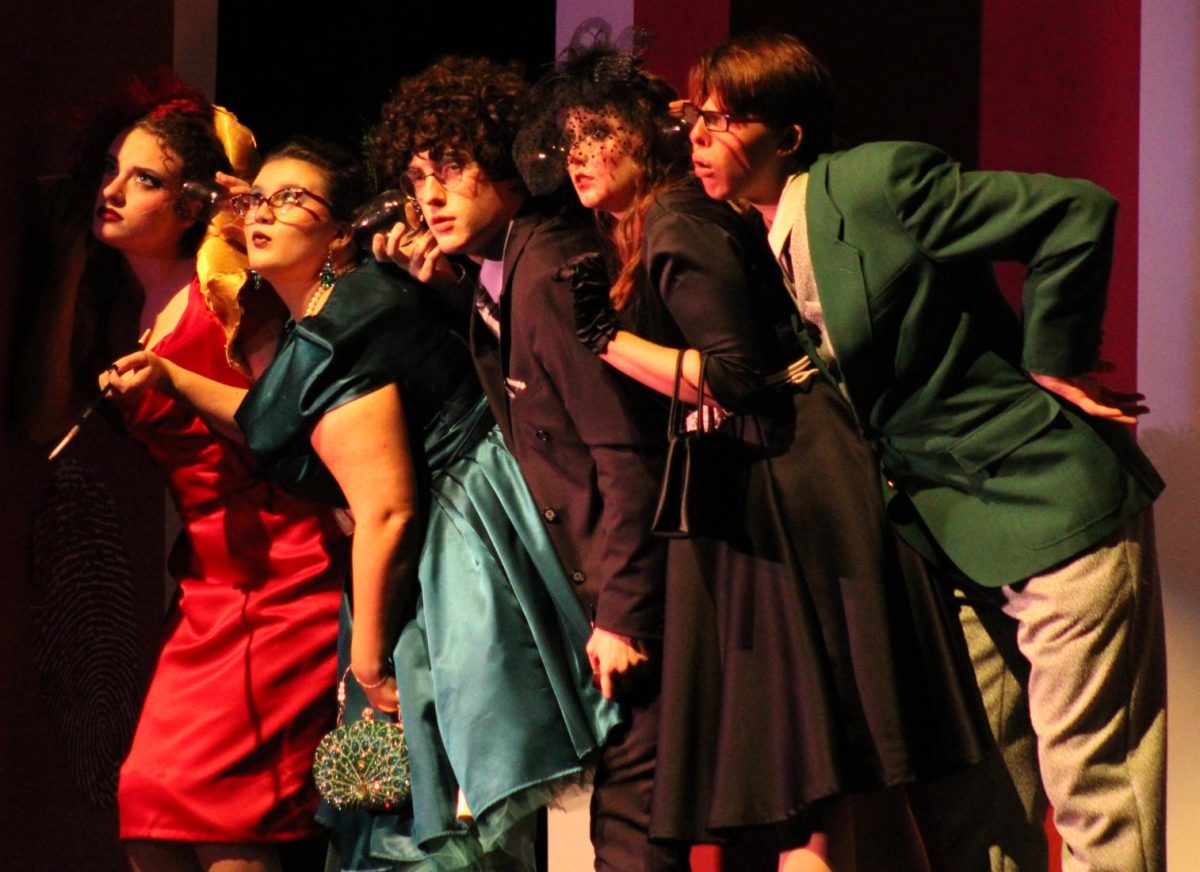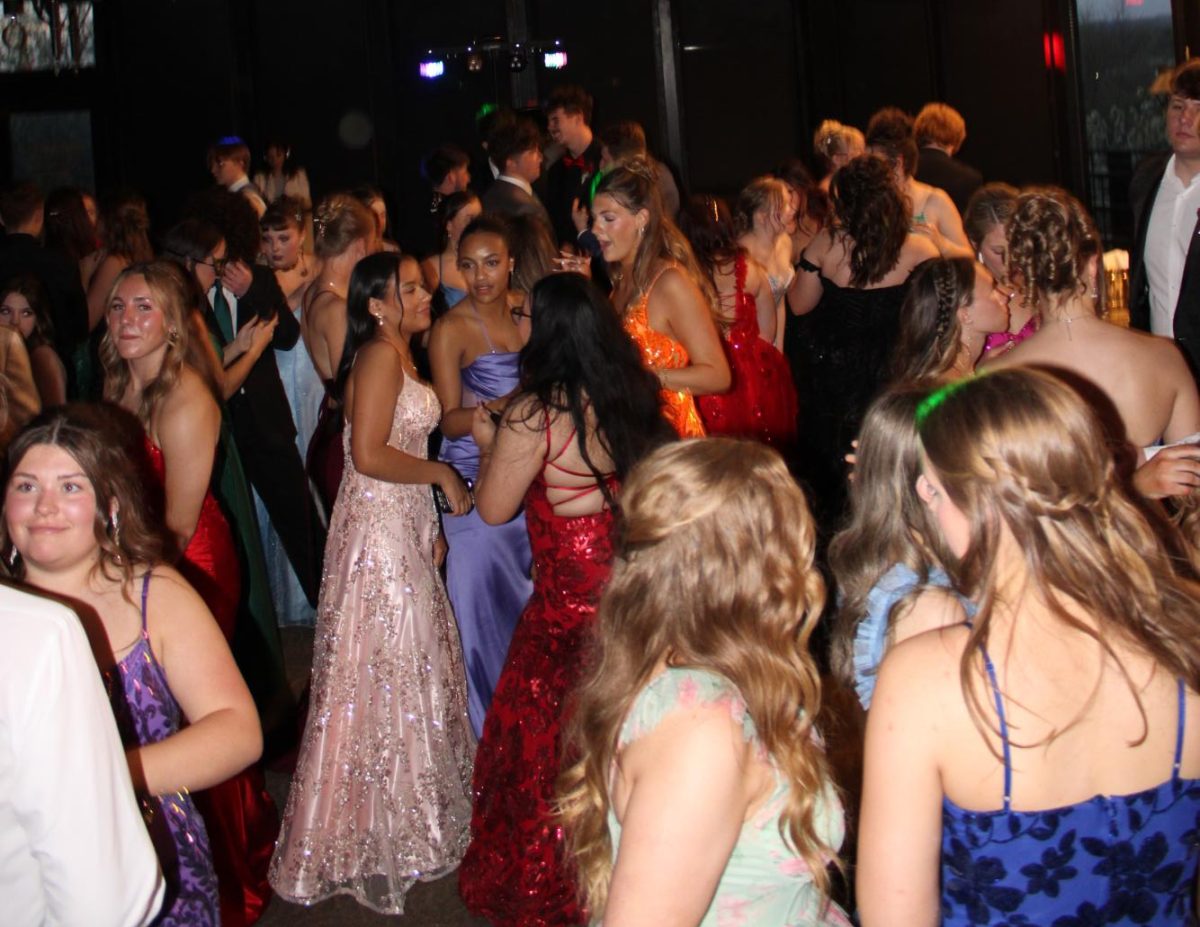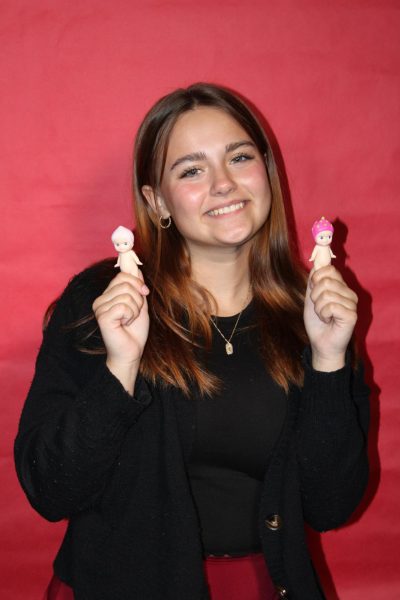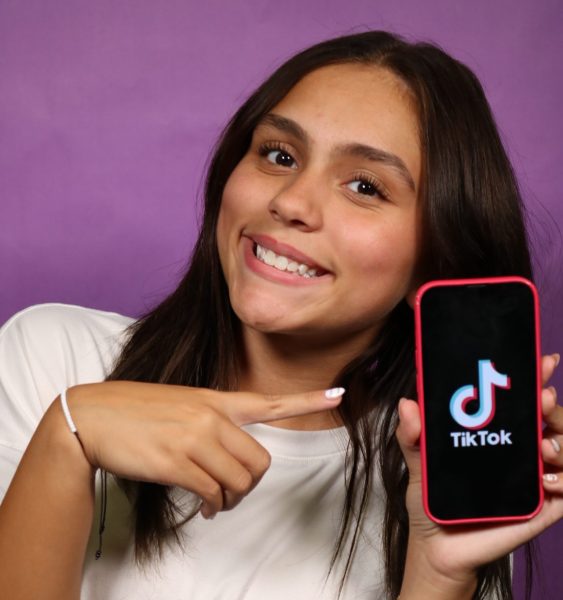On “delivered” for five hours. Green dot by their name on Instagram. Wondering what you said that made them not like you anymore. Back and forth between caring and being indifferent until you hear that “ping” that makes it all go away.
Teens are navigating the uncharted waters of love: the talking stage. It is a no-strings-attached way of getting to know someone before considering a deeper relationship.
Personal Thoughts
“My biggest issue with talking stages is that I am using that time to get to know that authentic version of you,” senior Ali Johnson said. “If you are faking who you are and not giving me your authentic self, not only does that affect me, it makes me feel like I am getting to know you when I am not.”
Johnson said that expectations and boundaries between a couple in the talking stage can be blurry, leading to hurt and confusion.
“I think because we put so much emphasis on talking stages,” she said, “some people think it is acceptable to still be messing around with people while you are trying to get to know somebody.”
For junior Wyatt Angell, the talking stage can mean a lot of different things.
“It is kind of just getting a feel for who a person is if you are not friends with them first,” Angell said. “The talking stage is one of the only ways you can do it without befriending them first.”
Junior Citlali Alarcon said that talking stages are good for a lot of things, mostly for getting to know someone before committing.
“The talking stage is the period when you are getting to know someone,” she said. “Obviously you need to get to know someone before you hop into a relationship with them.”
Being in many different talking stages has helped Alarcon learn what she really wants from a relationship, she said.
“My most recent talking stage ended up great,” Alarcon said, “but the ones before him were rough. At the same time, they helped me figure myself out and what I want in a relationship, and also how to set boundaries in relationships.”
For senior Will Bohrer, the talking stage is an agreement between two people to get to know each other better.
“The talking stage is a point where both parties collectively decide that they are not dating,” Bohrer said, “but that they are leading up to it and showing interest in one another.”
His past talking stages, he said, were just getting to know someone and mutually deciding that it would not work out.
“A few of them led nowhere,” Bohrer said, “Either they stopped showing interest or I lost interest. After talking to them for a while, I found that they were not really fitting my vibe.”
Boys vs Girls
With the misunderstanding of expectations, Johnson said, there are differences between how boys and girls treat the talking stage.
“I think boys tend to lack commitment,” she said, “because they are so used to this normalized idea that it is OK to be exploring all of your options at the same time.”
While boys, she said, may be talking to multiple people at a time, Johnson sees it as more of a commitment to just one person.
“I feel like a talking stage is like you are closed off (to other relationships) and you are committed to getting to know this person,” she said, “you just have not committed to fulfilling a relationship with that. For me, that means I have no interest in anybody else, I am just trying to see if this is actually worth pursuing.”
Angell said that the talking stage differs from person to person, but most importantly, from gender to gender.
“I think that boys might expect it not to be a relationship, but almost like a distraction from everything else,” he said, “whereas I think girls would value it more as a relationship.”
Alarcon said that while there can be differences in how boys and girls view the talking stage, it mostly just varies from person to person.
“People go in with different expectations,” she said. “Some people go in and they are like ‘Oh well, this is not that serious,’ while the other person is like ‘Oh this is really awesome, this could turn into something I really like.”
Bohrer said that there is a difference between how men and women view the talking stage, and that it is thanks to gender roles and upbringings.
“I think girls are more serious about it because they strive for an emotional connection from the get-go,” he said. “I think that is harder for men to do because we’ve been ingrained to suppress emotions.”
Affecting Self Esteem
One of the biggest issues with the talking stage, Angell said, is that it can affect someone much deeper than just on the surface.
“I definitely think that the talking stage changes who someone is,” he said. “When you are talking to someone, you are definitely going to embellish things about yourself. You will lead with everything good about yourself and they won’t get to find out anything bad.”
By picking and choosing what side of yourself to show, you also risk distrust and disappointment when the relationship does become official, Angell said.
“I think that is what the talking stage leads directly to the honeymoon stage when you do make it into a relationship,” he said. “You have not shown them the bad parts yet, and you are not going to when you are just talking to them.”
The excitement and rejections of the talking stage have potential to negatively impact people who haven’t had romantic relationships in the past, Angell said.
“For some people who are more deprived of that romance and attention, the talking stage might trouble their self-image,” he said. “I think they would fixate on it a lot, whereas people who have had more experience in that area may not feel as affected.”
With the talking stage, Alarcon said, comes a lot of negative thoughts and emotions.
“When the talking stage you are in does not work,” Alarcon said, “a lot of times you end up thinking: ‘Did I do something wrong?’ ‘Was I too boring?’ ‘Did they lose interest?’”
With those negative thoughts and feelings, she said, also comes the need to compare yourself to your love interest’s exes.
“You find out about them dating this one person in the past, so you think you are not good enough for them,” Alarcon said.
Dating vs. Talking
When it comes down to “traditional” dating and the “talking stage,” she said traditional dating works better for her.
“I am very social,” Alarcon said, “so I need to see the person I’m talking to more often. Old-fashioned dates like that are more effective for me.”
When it comes to dating, Bohrer said that he appreciates the low-pressure of the talking stage.
“You get into a situation where you are not spending money on each other of going out places,” he said. “You are not forced to be around them all the time so you are able to get to know them before you take that journey.”
With the evolution of technology, Bohrer said, comes changes to the dating world.
“Without technology,” he said, “we would not have talking stages. Where people go out on dates and ask questions like ‘Tell me about yourself,’ or ‘What are you interested in?’ we usually do that over the phone.”


